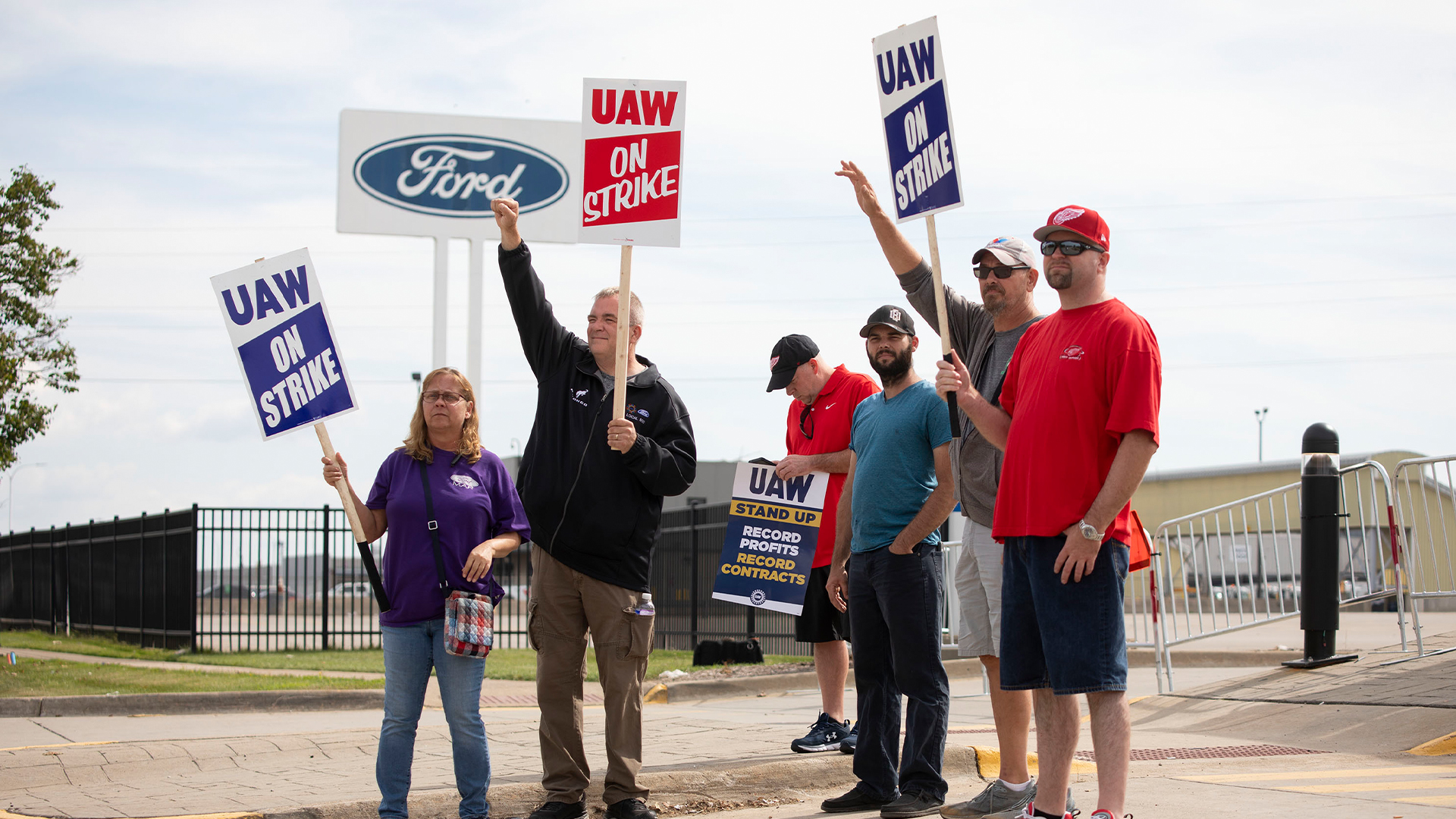

The United Auto Workers (UAW) union is about to enter its seventh day on strike after being in a stalemate with the “Big Three” Detroit automakers—Ford, General Motors, and Stellantis—for months. Despite the union and automakers attempting to come to a deal, the organizations have been deadlocked and both sides are working to counter one another’s offers.
On Tuesday, Stellantis turned down the UAW’s offer and countered with one of its own that has yet to be accepted. That offer marked the first from one of the automakers since the strike began on Sept. 15. To make matters even more complicated, the UAW has set a deadline of Friday at noon to wrap up negotiations with the big three. If “substantial progress” isn’t made by then, the UAW says that it will add additional locations to its strike.

One of the biggest asks from the UAW is 40% hourly pay increase for workers over the next three years. The UAW cites the increase in executive pay as its rationale and, according to a source familiar with the terms who spoke with Yahoo Finance, the gap between the union’s ask and the offers coming from GM, to name one example, is “very big.”
Ford offered workers a 20% increase over four years following the start of the strike. General Motors reportedly matched that offer, and Stellantis put 21% on the table. But that’s not enough for the UAW.
“The reason we ask for 40% pay increases is because, in the last four years alone, the CEO pay went up 40%,” said UAW president Shawn Fain. “They’re already millionaires.”
GM president Mark Reuss says that the UAW’s claims of “poverty” wages from the company is part of a “flow of misinformation.” In an op-ed in the Detroit Free Press, Reuss claims that around 85% of UAW-represented GM workers would be paid a base wage of $82,000 under the automaker’s proposal, which balloons to more than $150,000 per year with overtime and benefits factored in. Reuss also notes that the median household income in nine areas where it has major assembly plants is $51,821.
The UAW has also noted that current labor costs account for around 5% of the purchase price of a vehicle. In 2022, the average cost of a new vehicle was $46,290, meaning that a 40% increase in base pay could result in an increased cost of around $925 per vehicle.
In addition to the increase in compensation, the union is also asking for a four-day, 32-hour work week for its employees. The push for change rides on the coattails of the auto industry, specifically, Henry Ford, implementing the modern five-day, 40-hour work week in 1926. Now, nearly a century later, the same industry is calling on Detroit to cut back hours and give workers an extra day away from the plant.
Labor experts say that the work week isn’t the union’s primary concern. According to CNBC, if the pay issues are resolved, many believe that the UAW will drop the idea of a 32-hour work week.
“Our members are working 60, 70, even 80 hours a week just to make ends meet,” Fain commented during a Facebook Live event in August. “That’s not a living. That’s barely surviving, and it needs to stop.”

In the interim, a long-term strike looks increasingly likely. Axios estimates that there’s a “zero chance” that the strike will be resolved by the deadline, which would lead to additional strikes at more factory locations across the nation.
In the interim, automakers have wasted no time shuttering plants and calling for layoffs.
Stellantis has laid off 68 of its own workers at its Toledo plant where the Jeep Gladiator and Wrangler are built. The automaker is also toying with the idea of laying off another 300 workers at its Kokomo Casting and Kokomo Transmission plants in Indiana.
Meanwhile, General Motors has announced that it will lay off 2,000 UAW workers as it idles the Fairfax Assembly and Stamping plant in Kansas. Both the Cadillac XT4 and Chevrolet Malibu are assembled at that location, however, GM has run out of stampings needed to produce the Malibu, and those stampings are sourced from a GM facility in Wentzville, Missouri where workers are currently on strike.
If the deadline passes without any action, the UAW may try to hit the big three where it hurts: pickup trucks. Investment analysts believe that the union may target the production of domestic pickups next, which are top earners for Detroit. Pickups in particular are Ford’s best seller, with F-Series trucks being America’s top-selling vehicle for four decades in a row. By disrupting the production of these models, it’s anticipated that the entire industry’s production could be impacted by as much as 40%.
“We’re going to keep hitting the company where we need to, when we need to, and we’re not going to keep waiting around forever while they drag this out,” said Fain.
Got a tip or question for the author? Contact them directly: rob@thedrive.com